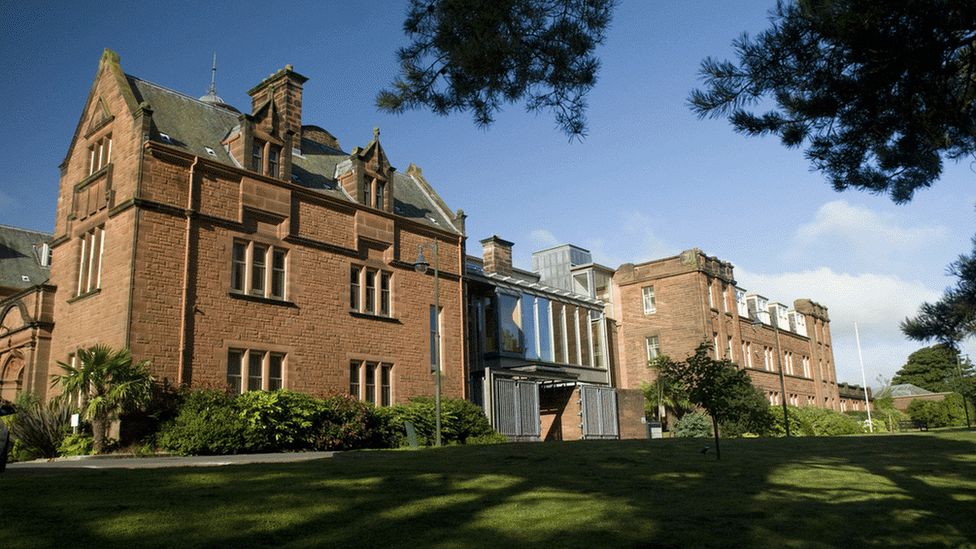University of Glasgow's Dumfries campus student numbers treble
- Published

Student numbers on the University of Glasgow's Dumfries campus have more than trebled in the 10 years since fears surfaced it could close for good.
The university confirmed in 2007 it was considering quitting the Crichton site due to £800,000-a-year losses.
Undergraduate admissions were abandoned but a funding package allowed that decision to be reversed a year later.
Figures now show a student headcount of more than 340 from a level of just 110 at the time it was considering leaving.
Staffing levels have also increased by more than 50% since 2010.
Dr Carol Hill, head of the School of Interdisciplinary Studies in Dumfries, said the surroundings of the Crichton were part of the attraction for students.
"In this beautiful part of the country the campus offers the best of both worlds: the benefits and resources of a large city university in a small and friendly setting," she said.
"The School of Interdisciplinary Studies supports a growing community of research students in Dumfries and further afield.
"Our research has an impact regionally, nationally and internationally."
Ten years ago the future of the campus looked much less secure.
Heavy financial losses prompted the decision to consider its future on the former mental asylum site which had seen its first University of Glasgow students in 1999.
That, in turn, sparked a community campaign opposing the move which gathered cross-party support.
Undergraduate admissions were abandoned in 2007 but the then Education Secretary Fiona Hyslop announced a £1.5m package to allow them to reopen the following year.
Since then, student numbers have risen steadily and are expected to top 350 later this academic year.
Analysis: Giancarlo Rinaldi, BBC news website, south of Scotland reporter
A decade ago Dumfries was in danger of losing one of its educational cornerstones.
The University of Glasgow had spent less than a decade on the Crichton campus when it announced it could quit the town.
The campaign against an end to undergraduate admissions was one of the most concerted and unified the region has ever seen.
It ultimately helped to win the funding necessary for the university to remain.
Ten years on, the student figures show the scale of the recovery which has been achieved.
The courses on offer have changed but the future now looks much brighter than anyone could have imagined back in 2007.
The university said its vision was for the campus to be a centre of "world-class interdisciplinary teaching, research and lifelong learning".
Its areas of specialism include environment, culture, health, wellbeing, social policy, education and tourism.
Among the achievements highlighted by the university are:
- becoming one of the region's most significant employers
- record student numbers leading to expansion
- new links with universities in China and Indonesia
- collaboration with campus partners through the Crichton Institute
- the creation of a national centre for resilience
"Our objective is for activity on the campus to reach the highest academic standards and to serve the social and economic needs of the region," a statement added.